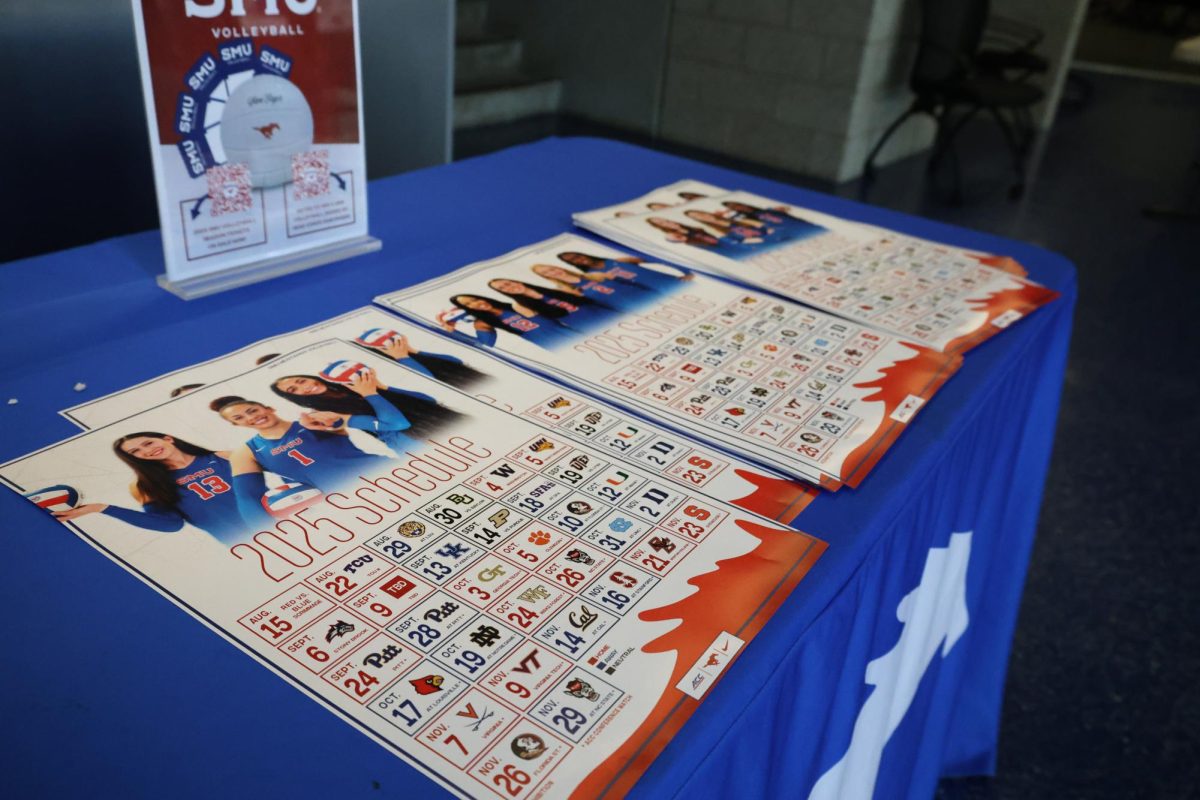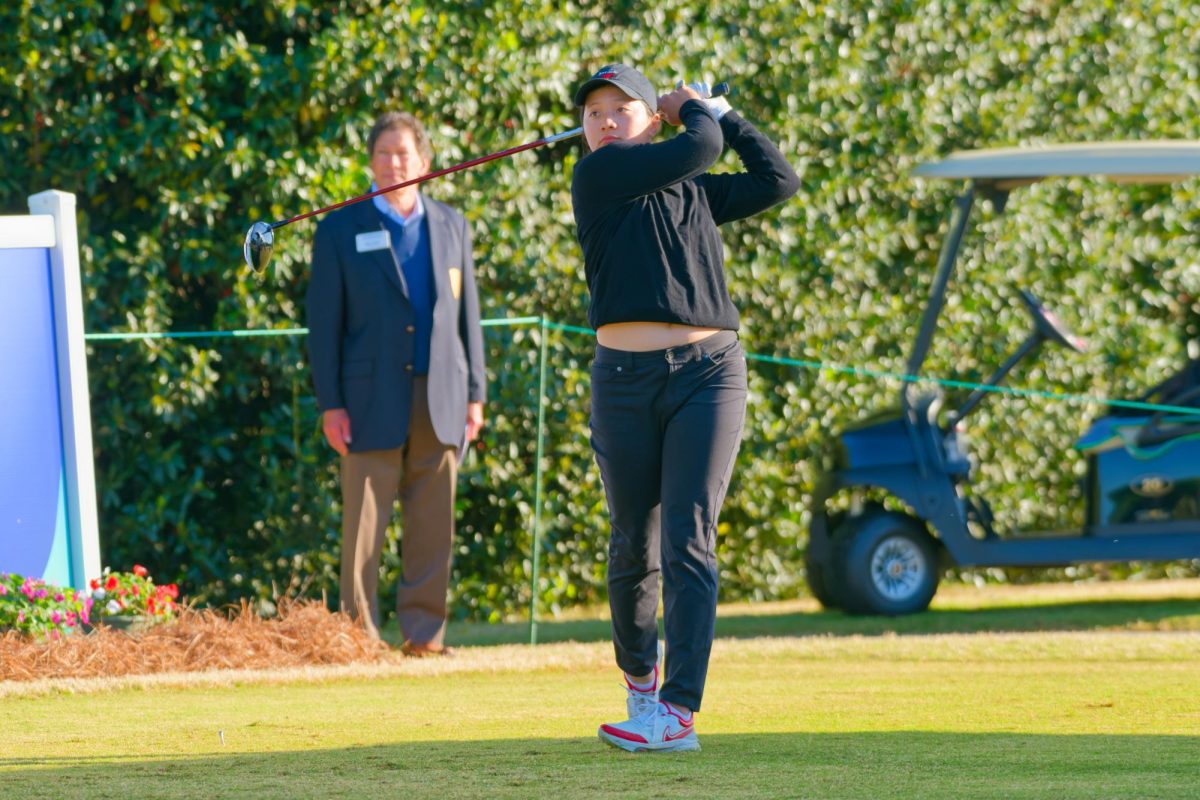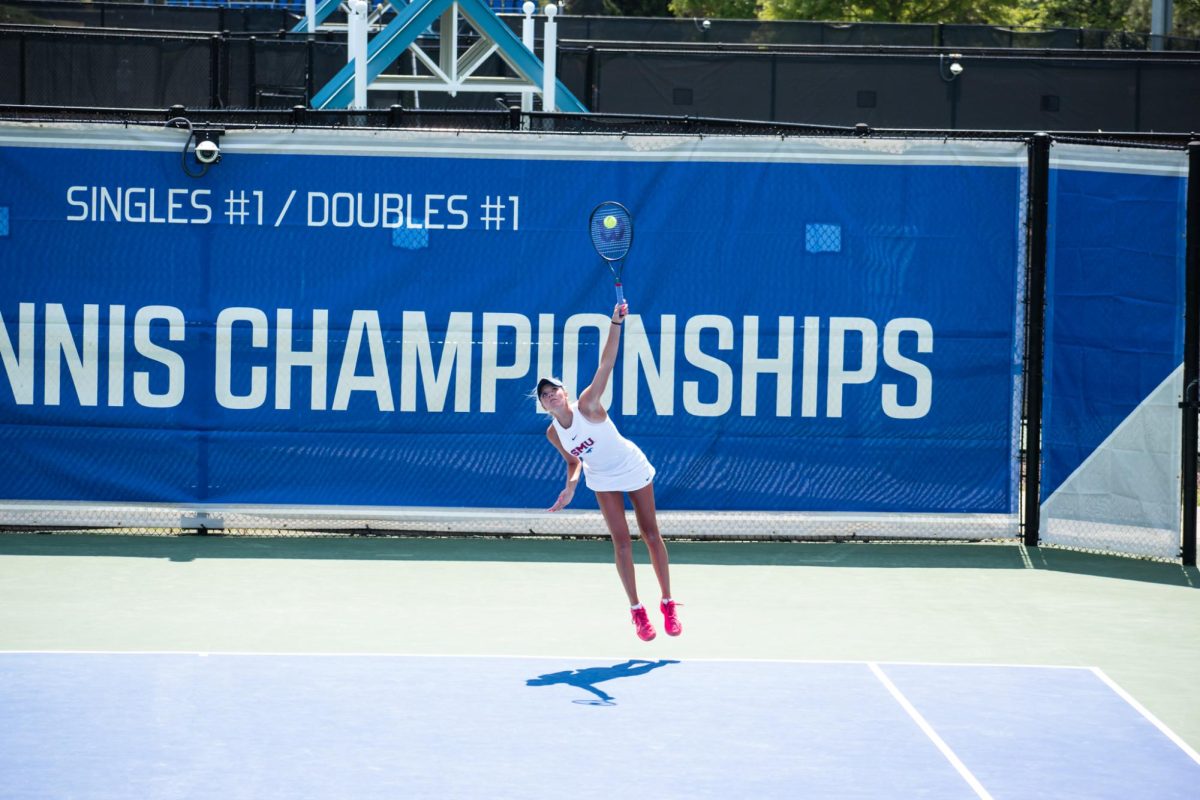June Jones sighs.
The SMU head football coach has seen this before. In 1982 and 1987 the National Football League and its players in the National Football League Players Association could not come to an agreement.
The 1982 players’ strike resulted in seven lost games per team, while the 1987 players’ strike resulted in one lost game per team.
The 2011 season is still at stake despite District Court Judge Susan Nelson’s ending of the 45-day lockout on April 25. The NFL is appealing to the Eighth Circuit Court of Appeals. If the Eighth Circuit rules in its favor, the lockout could be restored.
As of April 26, out of 32 teams only the New York Giants allowed their players to work out at their facilities. This comes after the NFL officially announced a lockout of the players on March 12, 2011. This is due to the two sides’ inability to agree on the revenue sharing of the $9 billion industry.
A lockout would affect more than just the NFL and its players. It would affect a nation who in February broke the record for the most watched television program in American history at 111 million—for a football game.
“Everybody is going to take a hit and probably more so in Dallas,” said Jones in an interview at his office. “You’re affecting all the jobs at the stadiums, cab drivers, limo drivers, restaurants, everybody. I believe this is something the NFL has been thinking about doing for the past five or six years.”
In the city of “America’s Team”, football is more of a religion than a pastime. Small businesses throughout the Dallas area would be hit hard if the 2011 season were to be cancelled or interrupted by the lockout.
Greg Wilkinson, owner of No Frills Grill and Sports Bar in Arlington said he would expect to see a 25 percent decrease in sales for the fall if football is not played.
Despite ESPN voting it as one of the top ten places in the nation to watch sports, Bobby V’s Sports Gallery Café in Arlington would without a doubt be a victim of the lockout, said owner Wayne Justus.
“Easily a third if not more [of our revenue and fans] during the season is from football games,” he said.
In Dallas, however, it is no longer only football that can bring big business. “It would be a save all if the Rangers went to the World Series again,” said Wilkinson.
He added that Cowboys Stadium has other ways to make money through events such as concerts. One of these ways is the U.S. Women’s Open bowling tournament in June. It will be the first ever bowling tournament to be held at Cowboys Stadium.
SMU has eight players going to the 2011 draft. One of them is senior tight end Patrick Fleming, 22. Fleming said he is just looking for an opportunity to get into a camp.
“I don’t follow the lockout situation much because it is out of my control. It doesn’t change my preparation,” he said. Fleming added that he would consider the United Football League.
Jones said he believes there will be a lockout and that the teams have the upper hand.
“I advised my guys that they’re the ones that probably will be effected most. If they have the opportunity to go to Canada [to play] they should do it,” he said.
Die hard Cowboys fans like Lindsay Neese, 21, and Amanda Friedel, 23, said they do not know what they will do if there is no football to watch next season.
“I was raised a Cowboys fan,” said Neese, from Flower Mound. She said she will probably end up watching college football if she cannot watch from the professional level.
A lockout begs the question of whether or not other sports would be affected with no football. Jace Sanders, coordinator of season tickets for the Rangers, said that the situation has not been discussed internally in the Rangers organization. However, he could understand that Sundays without Cowboys home games just one mile away could increase Rangers ticket sales on those days.
“The NFL has done a great job of always being a step ahead of the NBA and MLB,” said Jones.
However, if there is no 2011 NFL season, it will be the NBA and MLB that are relied upon.








